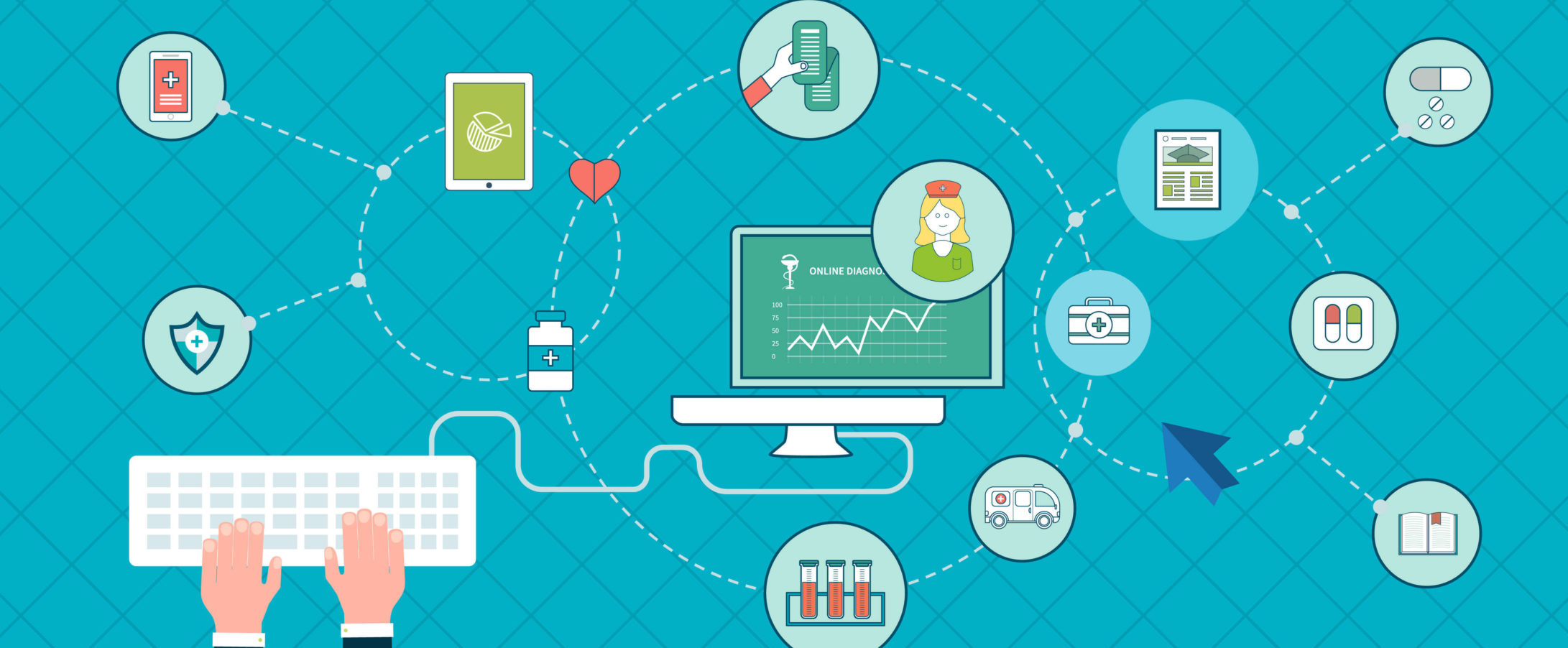The latest research has some surprising findings for doctors
The number of people who turn to the internet with health questions continues to rise. A 2018 study by Weber Shandwick and KRC Research found that 73 percent of U.S. adults obtained health-related information from the Internet. This is a significant increase since the seminal 2013 study from Pew Research Center that found 59 percent of Americans had searched online for health information in the previous year. And it’s safe to assume the numbers have only gone up since the COVID-19 pandemic emerged in the U.S.
Are these online information seekers better informed about their health? Are they finding high-quality information? The answers to those questions vary. Here’s how doctors can address this issue with their patients.
The bad news
First, we must start with the bad news. A 2020 study from Pew found that 55 percent of American adults use social media for news, sometimes or often. The people who rely most on social media for information tended to be less informed about political news and COVID-19 than people who get their news from other sources. They also were more exposed to—and believed—dis- and mis-information about the pandemic.
This is concerning because false information can lead people to take unnecessary risks, avoid vaccines, and can erode trust in doctors. For advice on combating misinformation and dealing with patients who resist wearing masks and conspiracy theorists, read our post How Can Doctors Retain Patients’ Trust?
Fewer than 1 in 5 U.S. adults were able to identify the three main causes of blindness. Only 37 percent were aware that symptoms don’t always precede vision loss.
Even when it comes to health concerns besides COVID-19, the abundance of online information does not mean that people are better informed. Although approximately 80 percent of the U.S. adults surveyed in a 2020 Harris Poll on behalf of the American Academy of Ophthalmology (AAO) said they were “knowledgeable” about eye health, the survey results did not back up that claim.
Fewer than 1 in 5 (or less than 20 percent) were able to identify the three main causes of blindness in the U.S. Only 11 percent were aware of all of the early signs of vision loss. And especially troubling, only 37 percent were aware that you don’t always experience symptoms before losing vision, reported AARP. “Glaucoma, macular degeneration, and diabetic eye disease—the three main causes of vision loss—can be causing damage without you even realizing it,” said ophthalmologist Andrea Tooley, M.D., an AAO spokesperson.
The good news
Now for the good news: the Weber Shandwick study also found that 66 percent of the online health information seekers do this research prior to going to their doctor. And a Polish study published in a medical journal last year found that health information obtained from the internet caused 45 percent of these people to make an appointment to see a doctor. This means that many people are taking what they find online and seeking out healthcare providers as a next step.
According to the authors of the Polish study, “Better informed and with knowledge gathered before the visit, the patients are well prepared for the visit and more often ask relevant and critical questions during the doctor’s appointment.” On the other hand, patients often find information from unreliable sources. They may request inappropriate or unavailable treatments based on something they read online.
A recent study reported that health information they found online caused 45 percent of people to make a doctor’s appointment.
It’s up to doctors to show patients “how to make the Internet a useful and reliable tool,” wrote the authors. The Weber Shandwick study found that one-third of healthcare information seekers (34 percent) reported that, compared to five years ago, they are relying more on healthcare providers. “This indicates that despite a plethora of resources available to the information consumer, their reliance on medical professionals will likely grow, along with a greater demand for trusted information from these people,” according to the study.
One caveat: this study found that patients in the Millennial generation are least likely to be satisfied with the information provided by doctors and the most likely to believe that online health-related information is as reliable as information from medical professionals. This suggests “doctors may be contending with a Millennial trust challenge.”
For more on this topic, download our whitepaper, Tap into the Potential of Millennial Patients.
Start by teaching your patients how to find reliable health information online—as this guide from the National Institute on Aging explains. It’s also a good idea to invest in your own patient education resources, such as Rendia, that can be branded for your practice. This establishes you as a trusted source of information and avoids the issues associated with using sponsored content from drug manufacturers.

